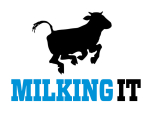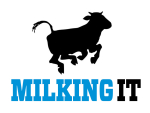A month after announcing a net profit after tax (NPAT) guidance of between $15 and $25 million for the 2023 financial year, the listed company last week issued a new NPAT guidance of a net loss of $5m to a net profit of $5m.
The shock turnaround spooked investors and Synlait's share price fell 27% to an all-time low of $1.56/share last Thursday.
Synlait attributes its change in fortunes to further demand reduction from one of its infant formula customers, claiming it wipes off $16.5m from its NPAT. The remainder of the NPAT impact of $3.5m is attributed to higher financing and supply chain costs.
But Synlait's key infant formula customer and cornerstone shareholder, a2 Milk Company, says it was surprised at the extent of the reduction in Synlait's guidane range.
In an NZX release, a2MC claims its production volume reductions equates to less than 5% of Synlait's reported advanced nutritional sales volumes over the 12 months ending 31 January 2023.
Jarden director equity research Adrian Allbon believes there are differences emerging between Synlait and a2MC.
"The relationship appears to be problematic again in terms of demand/supply planning and execution," Allbon told Dairy News.
Allbon expressed surprise at Synlait's profit downgrade, given the guidance provided by the company at its half-year results on March 27 and no downgrade from a2MC.
He believes there could be an issue with Synlait's new multinational customer or further issues with its new SAP IT system which the company blamed for its poor half-year results.
But from Synlait's statement, the main source appears to demand downgrade from a2MC.
Allbon says the latest financial setback will impact Synlait's recovery, by slowing it and elevating high debt loading further.
He says it's also hard to know if Synlait will be forced to issue further profit downgrades.
"Synlait is a volatile business and has high concentration of profits to key customers like a2MC and its new multi-national customer," says Allbon.
In its statement to NZX last week, Synlait said it remains highly focused on diversifying its customers, mitigating risk, and reducing its cost base and inventory to strengthen its balance sheet.
But it left the door open for further profit downgrades.
"In addition to the demand reductions and financing and supply chain costs cited above, as previous communicated, Synlait continues to manage several material risks which could impact its year-end performance, including, but not limited to, the SAMR re-registration timeline and supporting activities, the onboarding timeline for Synlait Pokeno's new multinational customer, UHT volume ramp up, a tight labour market, and high inflationary cost pressures.
"These factors could impact Synlait's current guidance."
Synlait's woes began in December 2020 when a2 Milk suddenly reduced its demand for infant formula. This led to a $28.5 million loss for FY2021, its first loss after nine years of profitability.
Founder director John Penno then took charge and announced a plan to return to "robust profitability". Last year the company posted a net profit of $38.5m.
Chinese dairy giant Bright Dairy owns 39% of Synlait. Penno holds a 2.3% stake in the company while a2MC holds 19%.


















